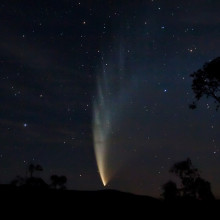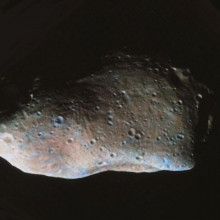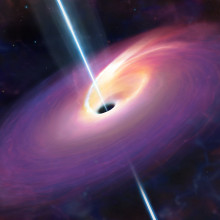As Comet ISON draws near to its close approach with the Sun in November, much uncertainty remains over how brilliant it will be. Dominic Ford speaks to Matthew Bishop at the Lowell Observatory to find out more. He also talks to Apostolos Christou from the Armagh Observatory about a group of asteroids which closely follow the orbit and Mars, and appear to fragments of a much larger pair of asteroids which collided. Tamela Maciel from the Cavendish Laboratory in Cambridge reports on the lonely exoplanet which doesn't seem to have a parent star, and Kirsten Gottschalk from the International Centre for Radio Astronomy Research reports that the non-detection of gravitational waves by radio astronomers is starting to rule out some theories of how black holes grow.
In this episode

01:07 - Update on Comet ISON
Update on Comet ISON
with Matthew Knight, Lowell Observatory
Transcript to follow.

15:01 - Asteroids following Mars's orbit
Asteroids following Mars's orbit
with Apostolos Christou, Armagh Observatory
Transcript to follow.

22:47 - How do black holes grow?
How do black holes grow?
with Kirsten Gottschalk, International Centre for Radio Astronomy Research
Transcript to follow.
- Previous Extreme Geology
- Next Packing plants with eco energy










Comments
Add a comment